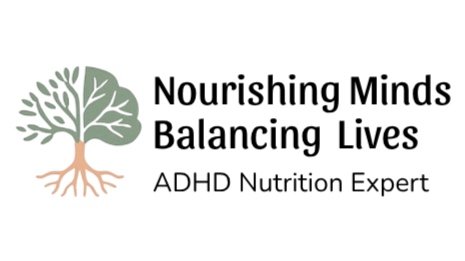Mindful Eating with ADHD: Finding Focus and Flavor in Every Meal
Navigating the world of food can be especially challenging for those with ADHD, where distractions often pull attention in every direction. Mindful eating offers a way to bring focus and enjoyment back to the table, helping to build a healthier relationship with food. By tuning into the sensory experience of eating, from the crunch of fresh veggies to the rich aroma of a home-cooked meal, we can find both flavor and focus in every bite. This approach not only supports more thoughtful eating choices but also reduces the likelihood of emotional eating. Let's explore how mindful eating practices can become a powerful tool in managing ADHD symptoms while enhancing the overall eating experience.
Understanding Mindful Eating
Mindful eating is a practice that encourages us to be fully present during our meals, paying attention to our food and our body's responses. This section explores the sensory aspects of eating and how mindfulness can help build a healthier relationship with food.
Sensory Experience of Eating
Mindful eating involves engaging all our senses during meals. This practice helps us appreciate food more fully and can lead to greater satisfaction with smaller portions.
When we eat mindfully, we take time to notice the colors, textures, and aromas of our food. We chew slowly, savoring each bite and noticing the flavors as they develop on our palate.
By focusing on the sensory experience, we become more attuned to our body's hunger and fullness cues. This awareness can help prevent overeating and promote a more balanced approach to nutrition.
Psychology Today suggests that this sensory-focused approach can be particularly beneficial for individuals with ADHD, helping to anchor attention and reduce distractions during meals.
Building a Healthy Relationship with Food
Mindful eating practices can transform our relationship with food, moving us away from restrictive diets and towards a more balanced, intuitive approach to eating.
By paying attention to how different foods make us feel, we can make more informed choices about what to eat. This doesn't mean eliminating certain foods, but rather learning to enjoy all foods in moderation.
Mindfulness can help us recognize emotional eating patterns and find alternative ways to cope with stress or boredom. It encourages us to eat for nourishment and enjoyment rather than out of habit or compulsion.
Over time, this approach can lead to a more positive and relaxed attitude towards food, reducing guilt and anxiety around eating. ADHDNutritionExpert.com emphasizes the importance of this balanced approach for individuals with ADHD.
Mindful Eating with ADHD
For individuals with ADHD, mindful eating can be both challenging and rewarding. This section explores the unique considerations for practicing mindful eating with ADHD and offers practical strategies for success.
Challenges and Opportunities
People with ADHD may face specific challenges when it comes to mindful eating, such as difficulty focusing during meals or impulsive eating behaviors.
However, these challenges also present opportunities for growth. Practicing mindful eating can help improve focus and self-regulation skills, which can be beneficial in other areas of life as well.
The Alliance for Eating Disorders notes that individuals with ADHD may be more prone to certain eating disorders, making mindful eating practices particularly valuable for this group.
Mindful eating can help address common ADHD-related eating issues such as forgetting to eat, eating too quickly, or using food as a form of self-stimulation.
By cultivating awareness around eating habits, individuals with ADHD can develop a more balanced and healthy approach to food and nutrition.
Practical Mindful Eating Practices
Implementing mindful eating practices with ADHD requires patience and consistency. Here are some strategies to get started:
Create a distraction-free eating environment by turning off screens and sitting at a table.
Use a timer to remind yourself to pause and check in with your body during meals.
Practice describing the sensory qualities of your food out loud or in a journal.
It's important to start small and build gradually. Even a few minutes of mindful eating at each meal can make a difference.
Remember that mindful eating is a skill that improves with practice. Be patient with yourself and celebrate small successes along the way.
Benefits of Mindful Eating
Mindful eating offers numerous benefits, from reducing emotional eating to improving overall nutrition. This section explores how mindful eating practices can positively impact both mental and physical health.
Reducing Emotional Eating
Mindful eating can be a powerful tool in addressing emotional eating patterns, which are common among individuals with ADHD.
By bringing awareness to our eating habits, we can start to distinguish between physical hunger and emotional cravings. This awareness allows us to pause and choose how to respond, rather than reacting automatically.
Mindfulness practices can help us identify and address the underlying emotions that drive us to eat when we're not physically hungry. This might involve finding alternative ways to cope with stress, boredom, or other challenging emotions.
Over time, this can lead to a more balanced relationship with food and improved emotional regulation. ADDitude Magazine highlights how this can be particularly beneficial for individuals with ADHD.
Enhancing Mindfulness and Nutrition
Mindful eating practices can lead to improved overall nutrition by helping us make more conscious food choices.
When we eat mindfully, we're more likely to choose foods that truly nourish our bodies. We become more attuned to how different foods make us feel, which can naturally guide us towards healthier choices.
This doesn't mean restricting certain foods, but rather learning to enjoy all foods in moderation. Mindful eating can help reduce overeating and promote a more balanced diet.
Moreover, the skills developed through mindful eating can extend to other areas of life, enhancing overall mindfulness and well-being. This holistic approach to nutrition and mental health can be especially valuable for individuals managing ADHD symptoms.


